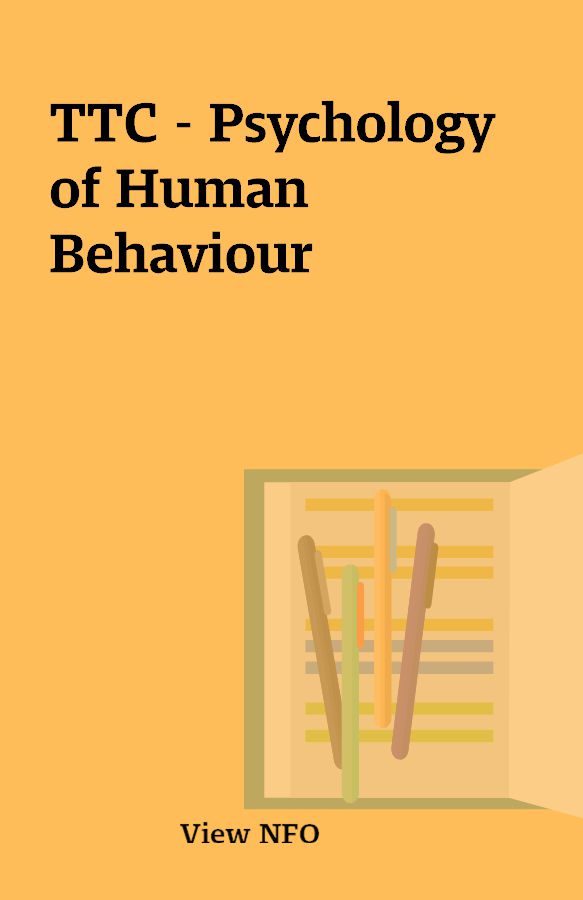TTC – Psychology of Human Behaviour
TTC – Psychology of Human Behaviour
Description
W hat comes to mind when you picture a psychologist?If you’re like most people coming to this fascinating field for the first time, the picture is apt to be a very familiar one.A quiet room. A leather couch. A neatly bearded, scholarly looking gentleman seated off to the side, only rarely speaking, quietly taking notes and occasionally nodding as the couch’s supine occupant tells his or her story.In some ways, such a picture would indeed be accurate, a confirmation not only of the importance of Sigmund Freud in the history of psychology but also of the degree Freud dominates the popular perception of this discipline.But the picture would be inaccurate, as well.Freud was a physician, and the majority of psychologists are not. Both the psychoanalytic theory he pioneered and the therapeutic approach it was based on ‘psychoanalysis’have seen their dominance wane in recent years. And psychologists today, as indebted as they may be to Freud’s landmark explorations of our psychological landscape, are involved in far more than helping people cope with inner demons.The expansive and varied roles of contemporary psychologists create another common image ‘of a crowd of white-coated researchers gathered around a maze, carefully recording a white rat’s performance. It’s another inadequate picture because experimental psychologists today usually work with people, not animals.Moreover, the areas of interest those psychologists are pursuing now encompass every part of the process we use to develop and function as people:How we perceive, remember, and learnHow we select our friends and partners and retain their affection and loveThe things that motivate us as we make our choices in lifeEven how we relate to the vehicles, machinery, computer systems, or workspaces we encounter as we make our livings.Lectures:01. Modern Psychology in Historical Context02. Experimentation as a Research Method03. Nonexperimental Research Methods04. Evolutionary Theory and Modern Psychology05. Freud’s Thinking06. Details of Psychoanalytic Theory07. Classification of Mental Illnesses08. Anxiety and Mood Disorders09. Disorders of Brain, Body, Self, Drugs, Sex10. Schizophrenic Disorders11. Childhood, Retardation, Personality Disorders12. Physical Therapies – Drugs13. Physical Therapies – ECT, Surgery, Genes14. Talking Therapies – Psychoanalysis15. Therapies – Humanistic, Cognitive, Group16. Behavior Therapies – Classical Conditioning17. Behavior Therapies – Operant Conditioning18. Models of Motivation19. Emotion – What Do We Measure20. Emotion – Theories21. Psychoactive Drugs – Processes, Stimulants22. Drugs – Depressants, Narcotics, Hallucinogens23. Social Psychology – Influence and Reciprocity24. Social Psychology – Additional Mechanisms25. Simple Learning – Classical Conditioning26. Simple Learning – Operant Conditioning27. Complex Learning28. Memory – Characteristics29. Memory – Memory Aids and Forgetting Theories30. Perception – Forming Internal Models31. Perception – Finding and Organizing Cues32. Evolutionary Psychology – Basic Concepts33. Evolutionary Psychology – Altruism and Mating34. Evolutionary Psychology – War, Family, Food35. Engineering Psychology36. Recap, Omissions, and Into the FutureMore info:http://www.teach12.com/ttcx/coursedesclong2.aspx?cid=1620
You must be logged in to post a review.






Reviews
There are no reviews yet.